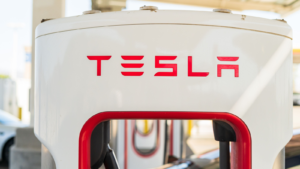
Although a lucrative industry, the electric vehicle space is highly competitive. But industry crowding is typical, especially during the earlier stages of development. We’ll probably see some consolidation in the next few years, whereby some EV companies will separate themselves from the pack and others fall out of favor.
Moreover, capital expenditure roadmaps could shift to acquisition-based strategies instead of purely investing in research and development. Therefore, a focus on market share is becoming increasingly important.
I delved into the EV stock landscape to identify three best-in-class assets. Keeping my base case from above, I decided to look at companies that may increase their market share in the coming years. Moreover, I phased out poorly valued stocks to ensure my picks host embedded value.
Herewith are my EV stock picks.
EVgo (EVGO)

EVgo (NASDAQ:EVGO) is operational in more than 30 states and hosts more than 950 fueling stations. The company’s stations are compatible with all major EV manufacturers, providing it with a significant end market.
Uniform data regarding the company’s market share has yet to emerge. However, EVgo’s historical 3-year compound annual growth rate of 1.09x speaks volumes about what is achievable. The firm is early-to-market and can undoubtedly benefit from an industry forecasted to grow at an annualized rate of 45% until 2027.
The company’s most recent fiscal report is telling. EVgo delivered $35.1 million in third-quarter revenue, a 243.3% year-over-year increase. Much of EVgo’s quarterly success derived from a 106,000 increase in customer accounts and a 206% increase in network gigawatt-hours throughput. Sure, profitability remains of concern as EVgo’s third quarter communicated a $28.3 million loss. However, consider that EVgo is an early-stage company with an aggressive reinvestment policy. As such, profitability will likely occur at a later stage.
Another noteworthy qualitative consideration is EVgo’s recent funding round. The company raised $12.7 million in preliminary awards from the National Electric Vehicle Infrastructure formula program. The funds will be used to roll out additional fast chargers, meaning EVgo’s next CapEx cycle is largely secured.
EVGO stock has a price-to-sales ratio of 1.98x, which I deem favorable given the company is in hypergrowth mode. Moreover, EVGO stock is backed by big-time investors such as The Vanguard Group, Invesco Capital Management and Van Eck Associates Corporation. As such, it is meaningful to conclude that EVgo looks solid from a market-based perspective and not just from a fundamental vantage point.
Tesla (TSLA)

I admit that TSLA (NASDAQ:TSLA) stock is an obvious pick. However, let’s not disregard it simply because coverage is widely dispensed. In fact, it would’ve been naive of me to exclude TSLA stock from today’s list as Tesla’s market share of 17% warrants a mention.
TSLA stock has surged by approximately 120% year-to-date amid a recovery in high-beta securities. The stock’s momentum may continue in 2024 as a potential interest rate pivot will lead to lower consumer financing costs. Furthermore, Tesla’s earnings before interest and tax margin of 11.81% looks set to expand due to lower manufacturing input costs, lending investors the opportunity to secure enhanced residual value.
A bottom-up analysis provides additional substance to a bullish argument. Tesla’s YTD wobbles are typical as automakers usually struggle to cope with economic softening. However, recent events suggest an inflection point has emerged. For example, Tesla’s China sales jumped by 14% in November, indicating that regional consumer sentiment is improving. In addition, Wall Street is excited about Tesla’s cyber truck rollout, with HSBC (NYSE:HSBC) analyst Michael Tyndall stating that the product line will enhance Tesla’s “brand appeal.” At the same time, Wedbush’s Dan Ives thinks the launch will contribute to a “broader growth story.”
Tesla’s price-to-sales ratio of 7.88x is at a 25.43% discount to its 5-year average, and its enterprise value-to-earnings before interest and tax ratio of 69.17x is at a near 74% discount. Thus, key metrics suggest TSLA stock is undervalued despite its year-to-date surge.
BYD Company (BYDDF)

BYDDF (OTCMKTS:BYDDF) stock offers investors geographic diversification. Although Tesla has exposure to China, its 8% regional market share doesn’t compare to BYD Company’s 35%. Moreover, BYD’s primary listing is in China, meaning its U.S.-listed security is influenced by non-U.S. stock market variables such as Chinese equity risk premiums.
Let’s set BYD stock’s diversification benefits aside for a moment and focus on its fundamentals.
A fundamental catalyst has emerged whereby BYD has, for the first time, officially outsold Nissan in a calendar month. Significant EV uptake in China has resulted in robust industry trend growth, leading BYD to 301,833 unit sales in October. BYD’s sales momentum will likely be sustained for now as China’s economy is expected to expand by 4% next year after slumping into negative growth territory earlier this year. I believe robust GDP growth will add a pull factor to BYD’s product line, resulting in exponential sales growth.
Furthermore, BYD Corporation’s return on invested capital of 11.26% speaks volumes. A high ROIC usually means a corporation is at a competitive advantage because a low amount of invested capital is required to monetize its business model. On top of that, BYD’s return on equity of 23.7% echoes the abundance of value passed down to the firm’s equity investors.
BYDDF stock has shed roughly 15% of its market value in the past six months. However, I am willing to bet on a recovery, which I base on the firm’s fundamental aspects paired with its favorable price-to-earnings-growth ratio of 0.11x.
On the date of publication, Steve Booyens did not hold (either directly or indirectly) any positions in the securities mentioned in this article. The opinions expressed in this article are those of the writer, subject to the InvestorPlace.com Publishing Guidelines.






